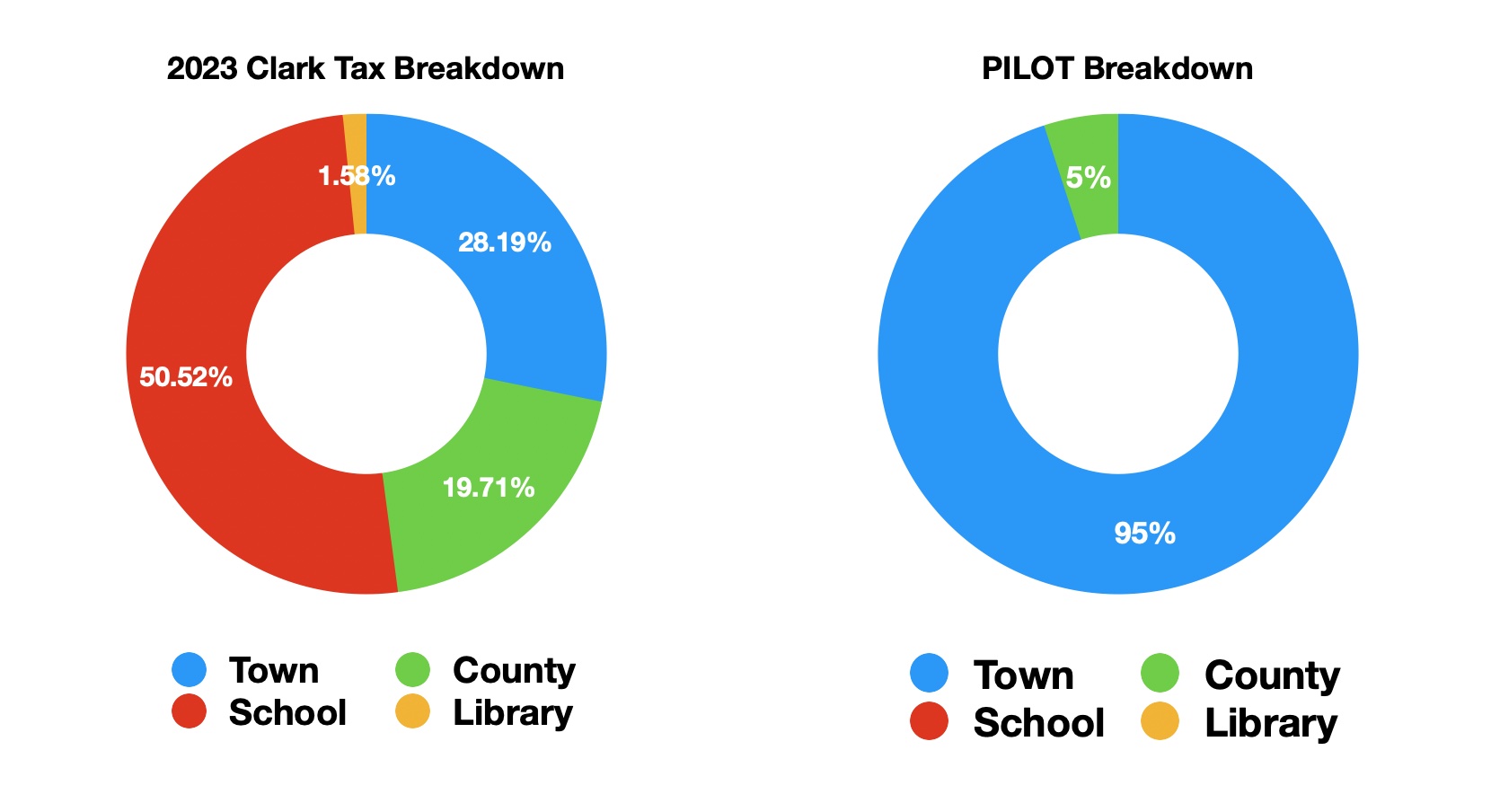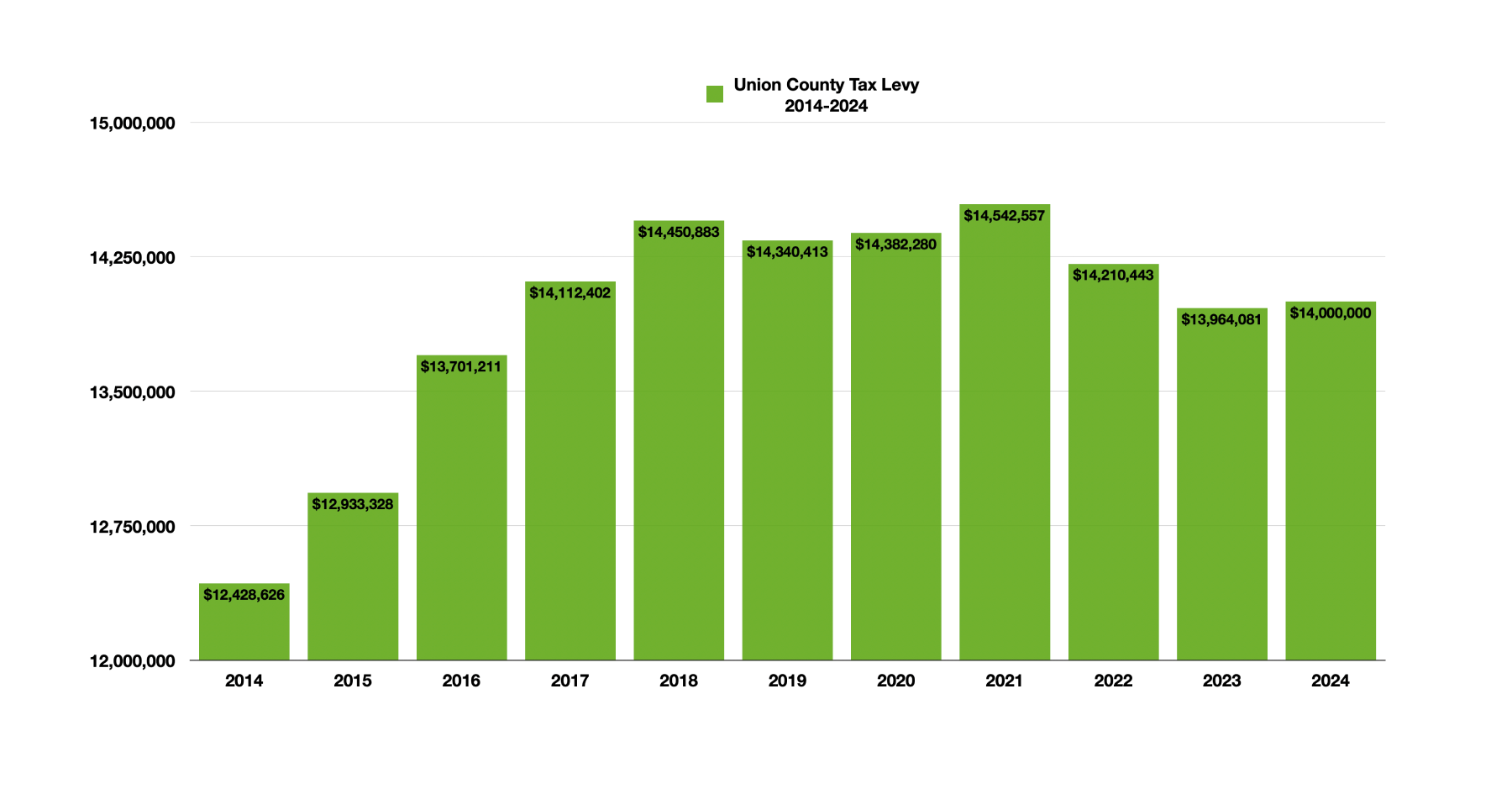
Payment in Lieu of Taxes (PILOT) agreements can bring more development to help Clark grow, but they also shift the burden of funding our schools away from developers and onto families. In a PILOT agreement, a builder pays a fee negotiated with the town instead of property taxes. This increases profits for the builder and makes building in Clark more attractive because the fee is generally much lower than normal tax payments. However, the money paid by the developer is not required to go to school funding. This leaves our schools underfunded, and if the development is residential, it can also increase the number of students, which increases the burden on schools. Because these agreements often last 30 years, Clark schools will need to wait until more than two generations of children have completed K-12 before they see a net benefit from the developments.
The Walnut Hill Apartments development at 25-35 Westfield Avenue was built under a PILOT agreement. Clark’s Town Council and the Mayor insist that there is no impact on schools from this agreement, because an ordinance was passed to return the same funding to schools received before the PILOT agreement. They seem to think this shows generosity because the town is legally allowed to remove this funding. What it really shows is that a more fair distribution of revenue was possible, but the leadership decided not to add any benefit to the schools. At best, this was a token gesture because there is no ordinance to return PILOT revenue to schools from other developments like the CubeSmart on Raritan Road.
Because of this agreement, Clark schools will likely have to educate more students with no additional funding. Before the PILOT agreement, schools received about $56,000 from the Walnut Hill site with 0 students coming from the property. Now, that same revenue must cover the cost of students coming from 178 apartment units. There is research showing there is an average of 20.8 school-aged children per 100 apartment households. The revenue per student in 2021 was $21,186. If only 10% of the 178 apartments in Walnut Hill have a school-aged child, 17 students would be added to classrooms. This would cost over $350,000, but schools only get the same $56,000 they received before development. Under normal tax conditions, schools would receive approximately $600,000. This shortfall is likely to be made up by either cutting school budgets or increasing school taxes for residents.

Clark’s schools are falling behind other towns in Union County. In the 2022/2023 school year, , which ranked 560 out of 659 districts in New Jersey and 19th in Union County. Funding doesn’t solve every educational problem, but it could raise salaries so Clark can attract and retain talented teachers and staff. Additional funding could pay for infrastructure and building improvements like air conditioning, which could allow for Summer learning programs and camps. Clark’s special education preschool program could move out of the municipal building and into school-owned facilities. The current PILOT agreements make these types of improvements harder for the next 30 years.
Development should improve our town and our schools now, not decades from now. Real estate values and rental rates are near all-time highs. There is plenty of profit to be made from developing a property in Clark. If there is a PILOT agreement, the town needs to split the revenue in a way that represents the burden on the different town resources, especially schools. PILOT shouldn’t be used for residential buildings unless the additional burden on schools is accounted for in the revenue agreement. Clark must reject any development deal where the burdens on the town and schools are greater than the revenue generated.
The Mayor and Council’s decisions demonstrate a short-sighted vision for Clark focused on next year’s budget, not the next generation’s well-being. It is a huge failure of leadership to dismiss the negative impact on schools. The town has a lot of discretion in the terms of PILOT agreements and how the money is distributed. Their choices in negotiating and accepting these bad deals demonstrate a blatant disregard for the long-term welfare of our community and our children’s education. Prioritizing immediate financial gains and developer profits over sustainable growth and adequate school funding sacrifices Clark’s future for a quick, short-term fix. This irresponsible governance not only undermines the quality of education but also jeopardizes the town’s overall growth and stability.


